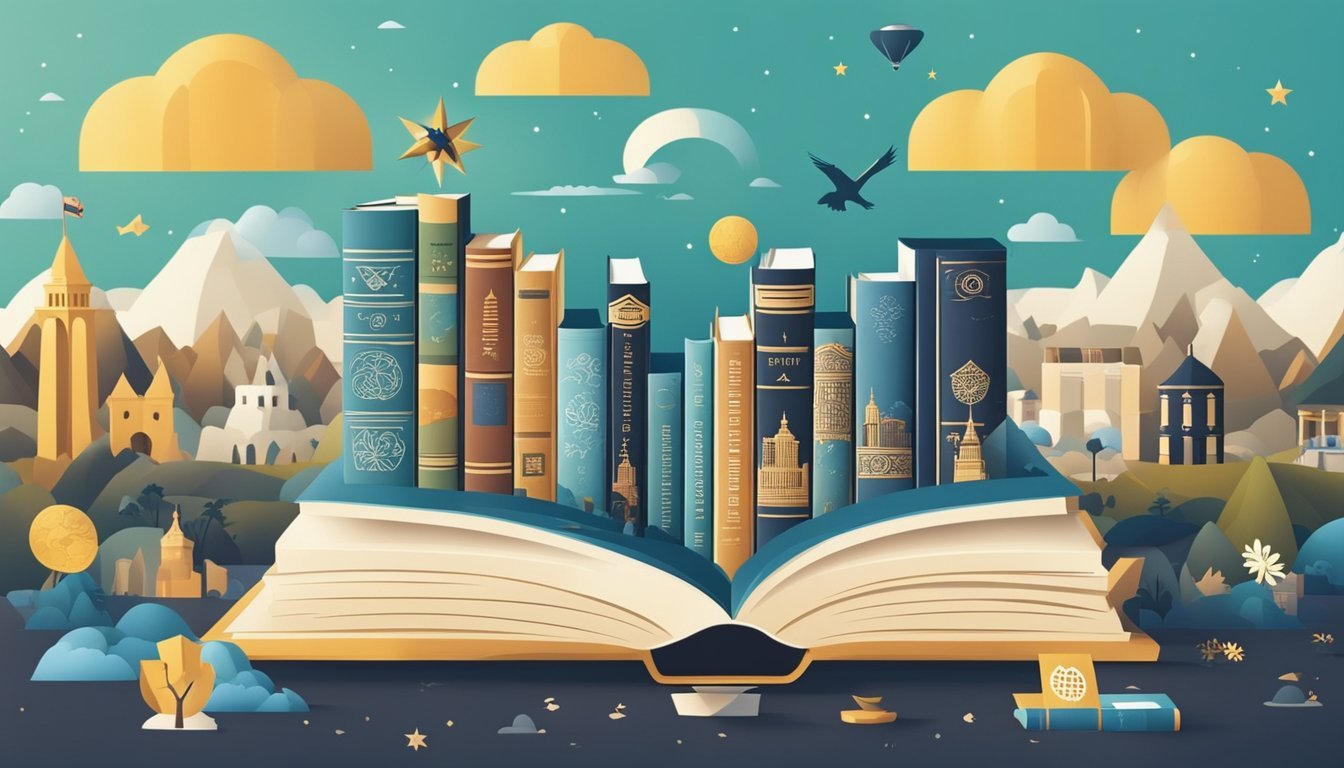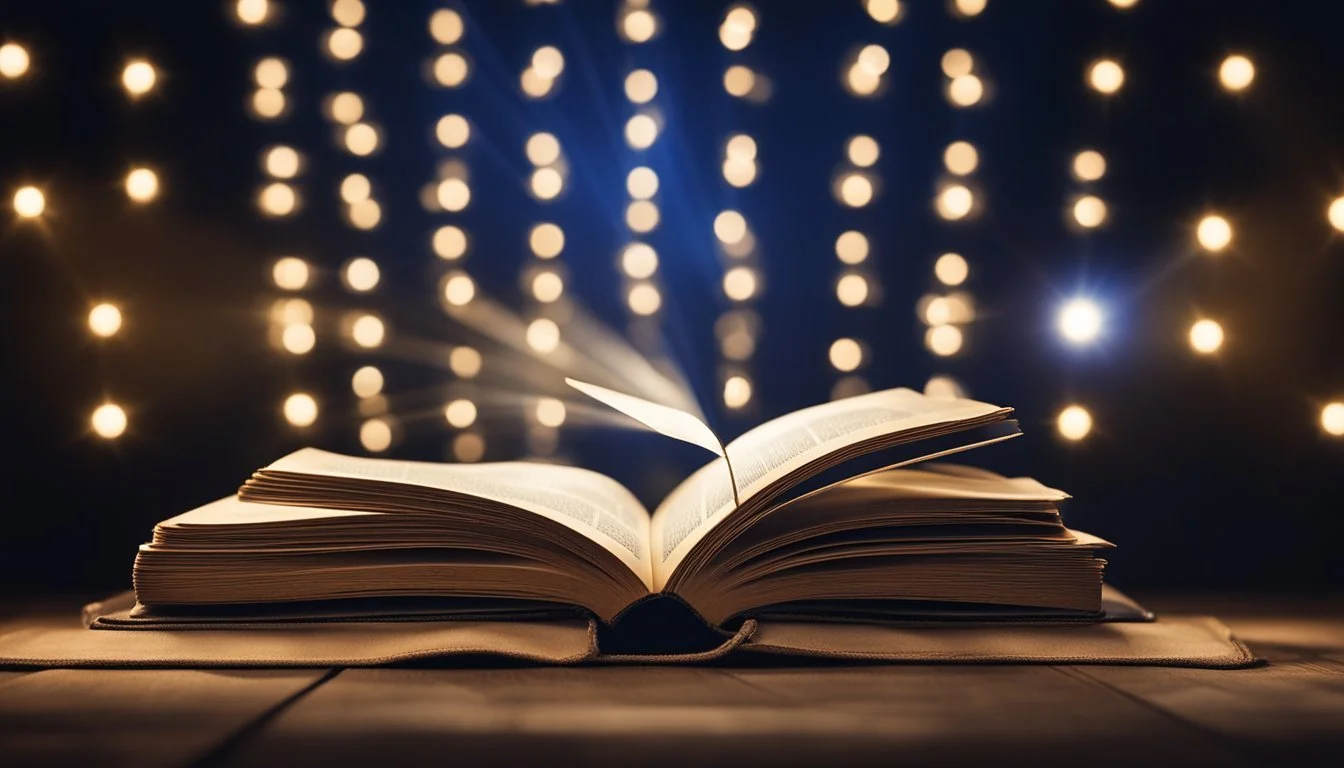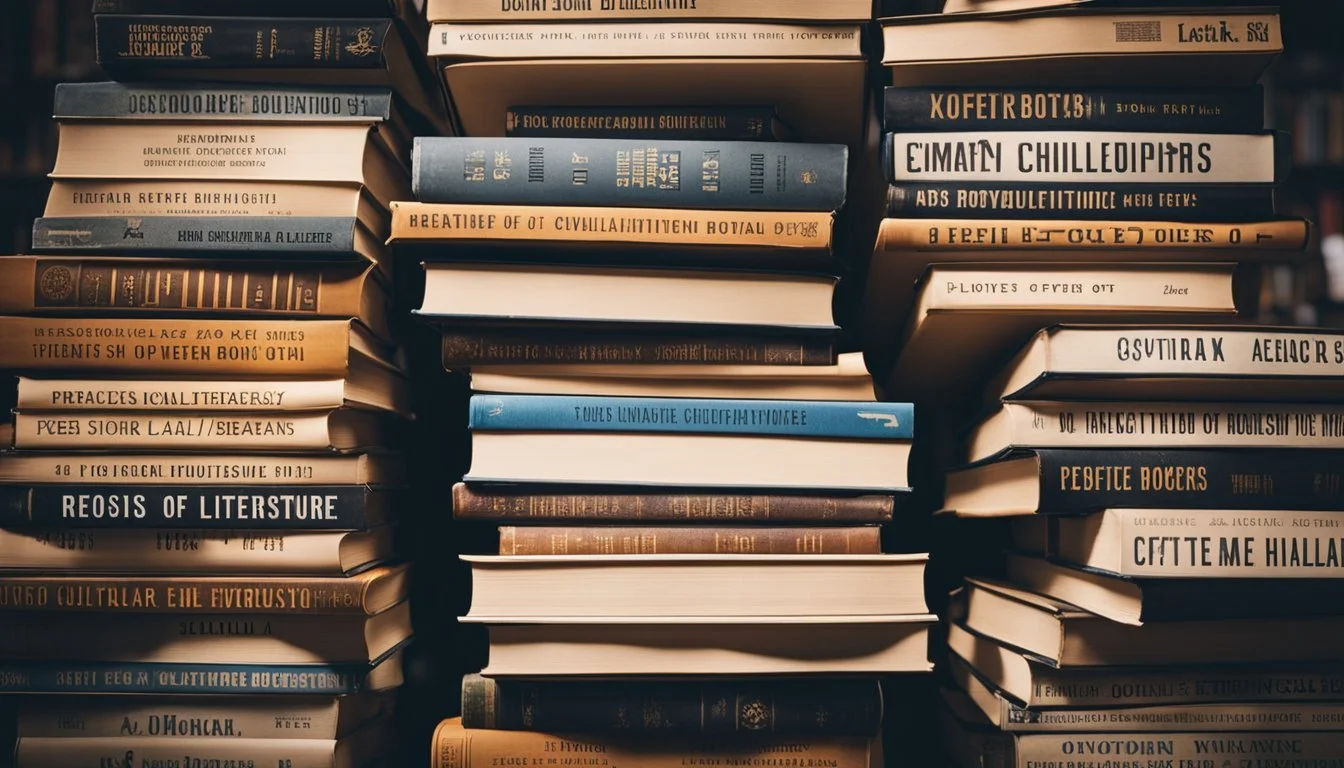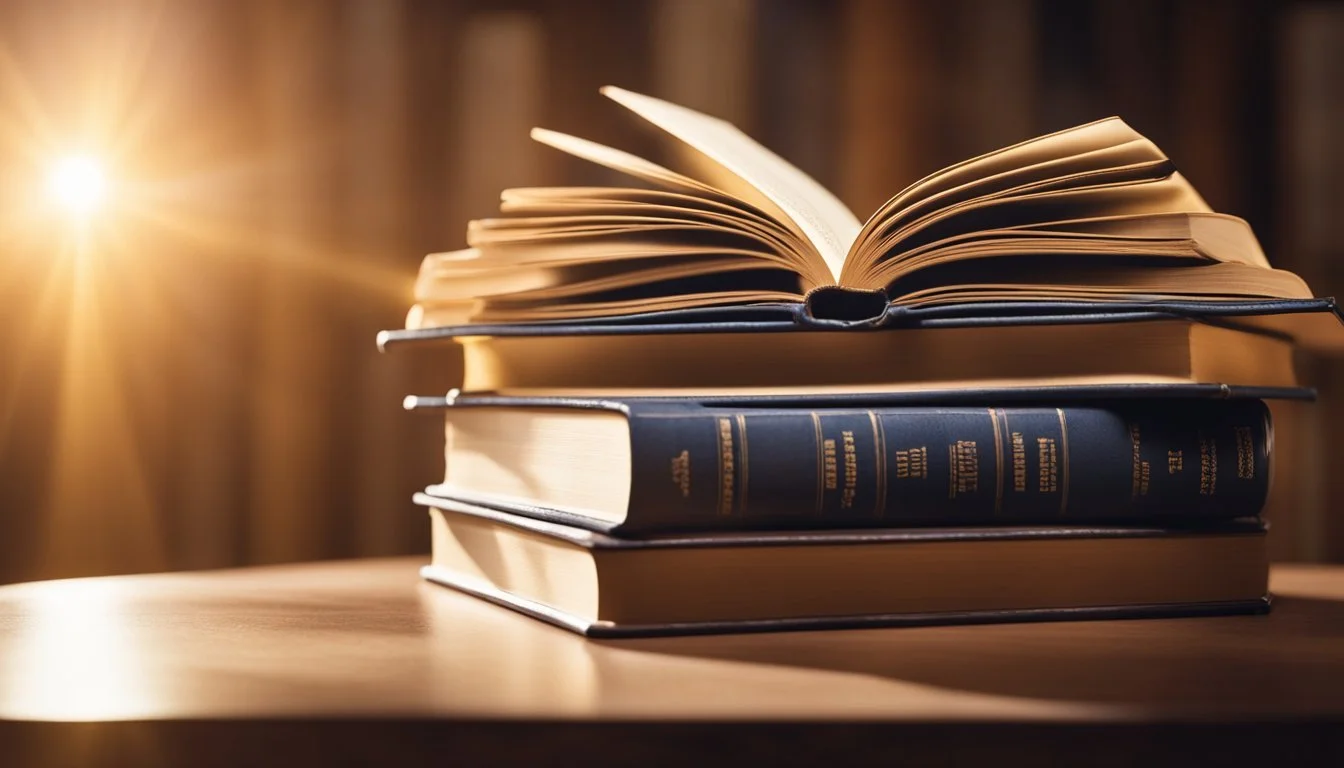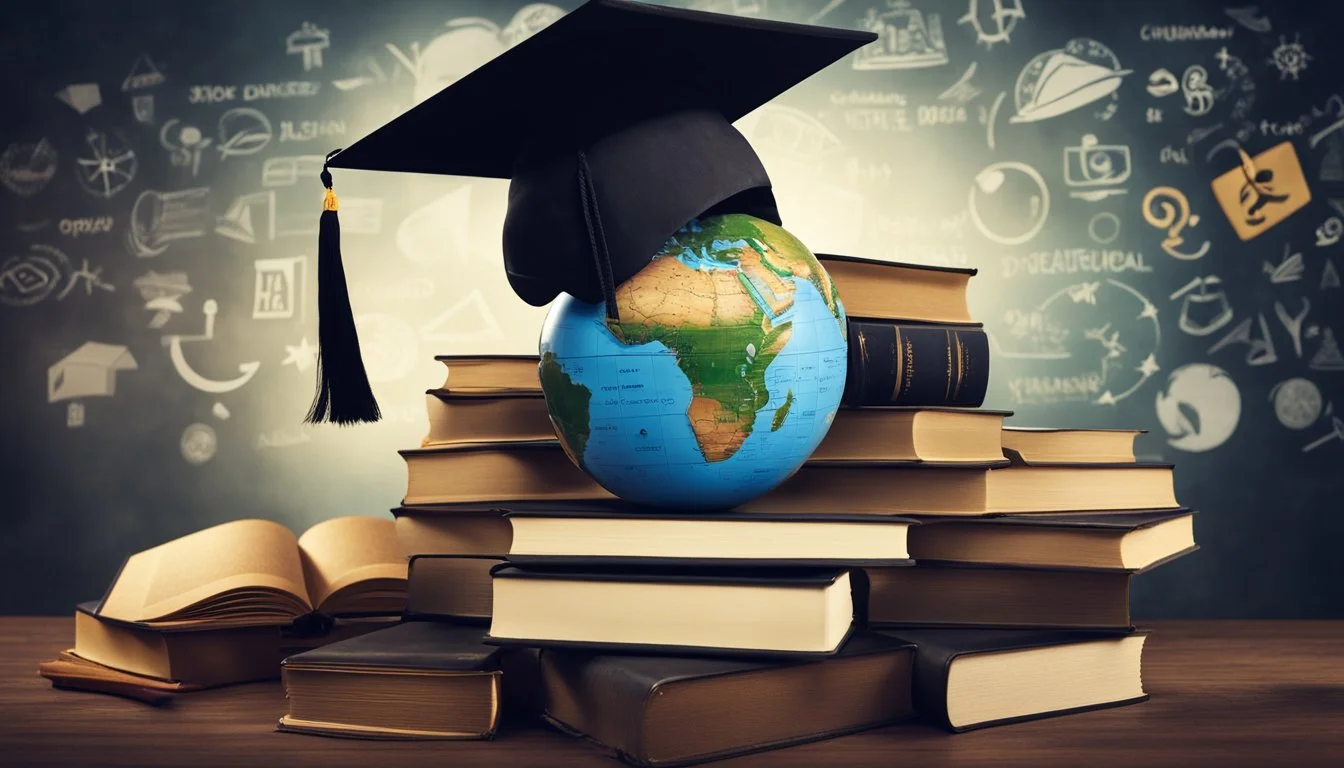9 Documentaries on the Impact of Literature on Culture
Exploring Literary Influences
Literature has long been a powerful force in shaping cultures around the world. Through the written word, authors have delved into societal norms, challenged prevailing ideologies, and provided a mirror to the human condition. As a result, the impact of literature on culture is profound and far-reaching.
Documentaries offer an insightful exploration of how literature influences cultural landscapes. These films bring to light the stories of writers, their works, and the subsequent ripple effects on society. Through these visual narratives, viewers gain a deeper appreciation of the indispensable role literature plays in shaping and reflecting cultural identities.
1) "The Books That Shaped Our World" - David Attenborough (2020)
David Attenborough's "The Books That Shaped Our World" explores the profound influence of literature on society.
The documentary highlights key works of fiction and non-fiction that have left lasting impressions on culture and thought.
Featuring interviews with authors, scholars, and readers, the film delves into stories behind these influential texts.
Viewers gain insight into how literature has sparked movements, inspired leaders, and shaped beliefs.
Find more information on IMDb.
2) 'Literature and Society' - Mary Beard
Mary Beard, a renowned classicist, explores the profound connections between literature and societal norms in her documentary series.
She examines how Roman literature not only reflected but also influenced Roman society.
Beard's insights draw from her extensive background as a Professor of Ancient Literature and her deep knowledge of Roman history.
In the documentary, she discusses the significant works of Roman authors. She highlights how these texts affected political and cultural landscapes.
Through various examples, Beard illustrates how literature can serve as a mirror to society’s values and anxieties.
Her approach is both analytical and engaging. She manages to make ancient texts relevant to contemporary audiences, showcasing timeless themes and conflicts.
This series is an invaluable resource for anyone interested in the dynamic relationship between literature and social evolution.
More about Mary Beard’s work can be found on Wikipedia.
(2024)
3) 'Words That Changed My Life' - Stephen Fry
Stephen Fry's involvement in the documentary "Words That Changed My Life" (2018) explores the profound impact of literature on individual lives and collective consciousness.
Fry delves into personal anecdotes and historical narratives, highlighting how words have the power to shape ideologies, beliefs, and societal structures.
Through various interviews and archival footage, Fry provides insights into how specific literary works have influenced his life and career, as well as their broader cultural significance.
An assortment of literary critics, historians, and public figures join him in analyzing the psychological and emotional effects of literature, showcasing its enduring importance.
The film emphasizes the role of literature in fostering empathy, understanding, and social change, underscoring its lasting impact across generations.
4) 'From Page to Stage' - Kenneth Branagh
Kenneth Branagh's contributions to adapting literature for the screen are seminal, particularly his works that bring Shakespeare's plays to life. He's successfully combined his theatrical background with his filmmaking prowess.
His 1989 adaptation of Henry V stands as a key work, where he directed and played the lead role. This film reinvigorated interest in Shakespearean cinema and showcased Branagh's dedication to preserving the play's dramatic intensity. More on Henry V (1989).
Hamlet (1996) represents another significant milestone, featuring an unabridged version of the original text. Branagh's meticulous attention to detail and his dual role as director and lead actor drew high praise from critics and audiences. More on Hamlet (1996).
Branagh also adapted Much Ado About Nothing in 1993. This film enjoyed commercial success and critical acclaim, bringing Shakespeare's comedy to a broader audience through its accessible and engaging presentation. More on Much Ado About Nothing (1993).
As You Like It (2006) marked another adaptation that remained faithful to the original play while introducing innovative elements. Branagh’s interpretation included unique settings and a diverse cast, enhancing the timeless appeal of the play. More on As You Like It (2006).
Branagh's works underscore his ability to bridge the gap between classical literature and contemporary cinema. Through his adaptations, Shakespeare's stage plays have continued to resonate with modern audiences.
5) 'Reading and Revolution' - Noam Chomsky
Reading and Revolution - Noam Chomsky (2021)
This documentary examines the interconnection between literature and social change through the lens of Noam Chomsky’s work. Known widely for his contributions to linguistics and political philosophy, Chomsky explores how literature has been a tool for revolutionary thought and action.
The film touches on Chomsky's early influences, such as George Orwell’s "Homage to Catalonia," which played a significant role in shaping his anarchist and left-libertarian beliefs. Chomsky discusses how literature can provide a framework for critiquing societal structures and inspiring activism.
The documentary also delves into Chomsky's linguistic theories, emphasizing how language structures our understanding of the world and can drive cultural shifts. This is exemplified through his revolutionary work in cognitive science and linguistics, treating language as a fundamental human cognitive capacity.
Through interviews and archival footage, viewers gain insight into Chomsky’s thoughts on the power of literature to challenge and change the status quo. IMDB.
6) 'The Written Word' - Margaret Atwood
"Margaret Atwood: A Word after a Word after a Word is Power" (2019) is a documentary exploring the life and work of Canadian author Margaret Atwood. The film captures her journey from her early years in the Canadian wilderness to her rise as a renowned literary figure.
The documentary delves into Atwood's novels, including "The Handmaid's Tale" and "The Testaments." It highlights her timely and relevant work in addressing themes such as authoritarianism and women's rights. Her impact on literature and culture is evident throughout the film.
Directed by Nancy Lang and Peter Raymont, this 92-minute documentary offers an insightful look at Atwood's influence on contemporary literature. It also earned praise for its comprehensive portrayal of her literary career and achievements.
Find more information about the film on IMDb.
7) 'Books That Define Us' - Neil Gaiman
Neil Gaiman's insights into the significance of books extend beyond casual observation. He believes that literature shapes our identity and cultural framework. In this documentary, Gaiman explores how certain books have profoundly influenced generations and society as a whole.
Gaiman delves into the transformative power of reading. He asserts that books build empathy, allowing readers to inhabit other lives and perspectives. This, according to him, can lead to a more understanding and compassionate society.
The documentary also highlights Gaiman’s personal journey with literature. From his childhood readings to his career as a writer, he shares the books and authors who have shaped his worldview.
"Books That Define Us" features interviews with other authors and readers. These conversations offer varied insights, showcasing the collective impact of books in shaping human experiences and cultural values.
For more on this documentary, see IMDB.
8) 'The Cultural Impact of Shakespeare' - Judi Dench
Dame Judi Dench offers an insightful exploration of Shakespeare’s enduring influence. In a special edition of This Cultural Life, she sits down with John Wilson to discuss how William Shakespeare has shaped her career and personal perspective. Shakespeare's complex characters and profound narratives resonate deeply with Dench.
Dench’s connection to Shakespeare started early. As a child, she watched her older brother perform in school plays. This early exposure to Shakespeare’s works sparked a lifelong fascination. Her subsequent roles in Shakespearean productions have seen her bring timeless characters to life on stage and screen.
Dench's reflections highlight the universality of Shakespeare's themes. His exploration of human nature, politics, and personal relationships continues to be relevant. Through her interpretations, Dench demonstrates how Shakespeare's works remain a powerful tool for examining contemporary society.
For more information on the This Cultural Life episode featuring Judi Dench and Shakespeare, you can visit the BBC Four website (2023).
9) 'Literature as Resistance' - Arundhati Roy
Arundhati Roy's works embody the power of literature to resist oppression and critique societal norms. Her novel, "The God of Small Things" (1997), not only won the Booker Prize but also highlighted issues of caste, gender, and social inequities in India. Roy's use of lyrical language and complex characters challenges readers to confront uncomfortable truths.
Beyond her novel, Roy's essays and activism amplify her literary resistance. Her works, such as "Walking with the Comrades" (2011), document indigenous struggles and critique corporate exploitation and state power. These writings extend her influence beyond fiction into real-world impact, addressing global issues like human rights and environmental justice.
Roy's outspoken positions on various political and social issues often attract significant attention. She critiques nuclear policies, supports insurgent movements, and challenges ecological destruction. This fearlessness in addressing controversial topics marks her as a writer unafraid to use literature as a form of resistance.
Roy's enduring impact on both literature and activism demonstrates the power of a single voice to inspire and drive change. Her commitment to advocacy and storytelling showcases the potential of literature to serve as a powerful tool for social justice.
Learn more about Arundhati Roy
Historical Impact of Literature
Literature has influenced social movements and shaped political thought throughout history, demonstrating its profound impact on culture and society.
Influence on Social Movements
Literature has been a catalyst for social change and reform. Works such as Uncle Tom's Cabin by Harriet Beecher Stowe helped galvanize anti-slavery sentiments in the United States. Similarly, Charles Dickens' novels highlighted the plight of the poor during the Industrial Revolution, spurring public sympathy and calls for reform.
Authors use their narratives to shed light on social injustices, providing a voice to marginalized communities. Literature serves as a medium through which societal issues are examined, criticized, and addressed. The power of storytelling can elicit empathy and inspire collective action, as seen in the Civil Rights Movement, where texts by authors like James Baldwin and Maya Angelou played crucial roles.
Shaping Political Thought
Literature has played a crucial role in shaping political ideologies and philosophies. Works like The Communist Manifesto by Karl Marx and Friedrich Engels laid the foundation for Marxist thought, influencing political movements and revolutions worldwide. Similarly, Machiavelli's The Prince had a profound impact on political strategies and governance.
Political novels and treatises often provide a critique of existing systems and suggest new frameworks for governance. For instance, George Orwell's 1984 presents a dystopian view of totalitarianism, influencing discussions on surveillance, freedom, and state control. Literature offers a platform for intellectual debate, allowing readers to explore and question political theories and policies, thereby influencing the course of history.
Literature and Cultural Identity
Literature serves as a key component in shaping both individual and cultural identities. It plays a crucial role in preserving traditions and impacts the evolution of language and dialects.
Role in Preserving Traditions
Literature is fundamental in maintaining cultural heritage. Through stories, poems, and folklore, communities pass down their histories, values, and customs. This preservation helps maintain a sense of identity across generations.
For example, indigenous literature often includes myths and legends that explain natural phenomena or moral lessons. These narratives are not only entertaining but also educational, instilling cultural norms in young readers.
Historical novels can offer insights into past lifestyles and societal organization, allowing modern readers to understand their ancestors better. In this way, literature acts as a cultural time capsule, preserving and transmitting the essence of a culture.
Impact on Language and Dialects
The influence of literature extends to language and dialects, shaping how people communicate. Classic works often introduce new vocabulary and expressions, solidifying them in everyday use. Shakespearean plays, for instance, contributed significantly to the English language, adding hundreds of words and phrases still in use today.
Regional literature reflects and molds local dialects, reinforcing linguistic diversity. Authors who write in dialect give a voice to marginalized communities, making their speech patterns and idioms visible on a larger stage.
Contemporary literature also plays a role in the evolution of language. As authors blend traditional forms with modern slang or internet language, they help bridge generational gaps and create a more inclusive linguistic landscape. This dynamic interaction between literature and language ensures that both remain vibrant and relevant.
Literature's Role in Education
Literature plays a crucial role in education by broadening students' perspectives and enhancing their critical thinking skills. Through exposure to diverse narratives and complex ideas, students develop a deeper understanding of the world.
Expanding Worldviews
Literature allows students to immerse themselves in various cultures, historical periods, and life experiences beyond their immediate environment. By engaging with stories from different parts of the world, students gain insights into other people's lives, fostering empathy and understanding.
Books such as Chinua Achebe's Things Fall Apart provide a window into African culture and colonial impacts, while To Kill a Mockingbird by Harper Lee challenges readers to confront social justice issues in the American South. This exposure helps break down stereotypes and build a more inclusive worldview.
Critical Thinking and Analysis
Analyzing literature requires students to engage deeply with texts, encouraging them to question and critique the material. This practice enhances their ability to think critically, an essential skill in education and beyond.
Programs incorporating literature-based discussions and writing prompts, like those suggested in educational strategies, prompt students to reflect and articulate their thoughts clearly. Analyzing the motifs in George Orwell's 1984 or the themes in Jane Austen's Pride and Prejudice strengthens comprehension and analytical skills. Active engagement with literature fosters a nuanced understanding of human experiences and societal constructs.

